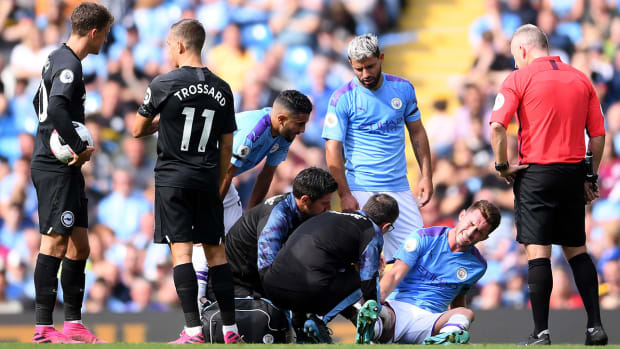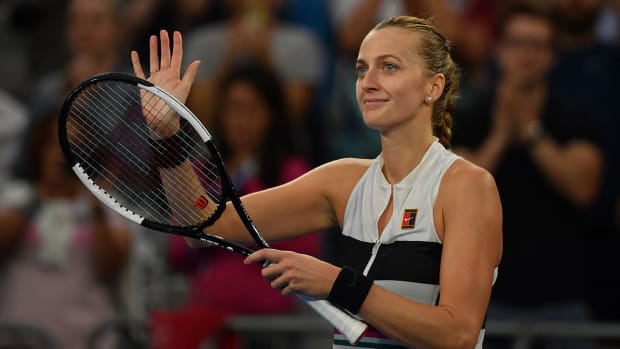China admits 6 positive tests in swimming; denies cover-up
BEIJING (AP) The World Anti-Doping Agency will study allegations of cover-ups of positive drugs tests by Chinese swimmers following claims in a British newspaper.
The Times reported on Thursday that it had been approached by whistleblowers in Chinese swimming who said that five positive tests had been kept secret.
It also said that coach Zhou Ming had been working with swimmers in Tianjin. Zhou was banned by world governing body FINA in 1998 after overseeing the scandal at the world championships in Perth, Australia, when four swimmers tested positive and vials of human growth hormone were discovered in a swimmer's bag by Australian customs authorities.
''These are very serious allegations concerning Chinese swimming that warrant further examination,'' WADA spokesman Ben Nichols said. ''WADA is now fully scrutinizing the information that The Times newspaper has passed on to us so that we can determine exactly what the appropriate steps are and so that we can address this matter head on.''
China's anti-doping agency responded to the allegations by saying it had recorded six recent positive tests by Chinese swimmers and denying any cover-up.
Zhao Jian, deputy director of the Chinese agency known as CHINADA, said it had recorded three positive tests, all for clenbuterol, in late August and early September. The swimming federation will soon issue punishments in those cases and the results will be made known, he said.
Zhao said there have also been three positive tests since the beginning of 2016, all in January, but those remain under investigation and will be publicized within 20 days of punishments being issued in accordance with WADA regulations. He said the World Anti-Doping Agency has been kept informed about all positive tests.
World governing body FINA also confirmed that failed tests by Chinese swimmers were under investigation without identifying any of the athletes involved until a suspension is handed down.
''There are a small number of cases of failed doping controls by Chinese swimmers currently being investigated under the jurisdiction of CHINADA, the WADA-recognized Chinese Anti-Doping Agency,'' a statement said. ''FINA and WADA are both fully aware of these cases, but we are bound by confidentiality until the moment an athlete is actually banned.''
''If the information we receive does merit further investigation, then FINA will leave no stone unturned in ensuring justice is served for the overwhelming majority of aquatics athletes who are clean,'' the federation added.
The Times story said whistleblowers approached the paper to ''avoid a storm'' before China's Olympic trials next month and asked the paper to pass the information to WADA.
''Since the very beginning, China has never covered up any positive doping tests,'' Zhao said. ''I am not sure what (the paper) really referred to and the report was vague. So there has not been such a sensational thing such as a cover-up and it is not true.''
The Chinese swimming federation declined to comment on The Times' article.
On Wednesday, WADA said it would study allegations by The Times of widespread doping in Russian swimming.
Some of the claims were linked to sports doctor Sergei Portugalov, who WADA wants banned for life after his role in a doping conspiracy in track and field was detailed in November. That WADA-commissioned inquiry led to Russia's track team being banned from international events.
''There is no doubt that today's disturbing assertions of orchestrated doping in Russian swimming should be scrutinized,'' WADA President Craig Reedie said in a statement.
FINA said Wednesday it had no ''concrete evidence'' of systemic doping in Russia and called on The Times to share its evidence. It pledged to investigate any allegations ''substantiated by evidence and which have not already been addressed.''
The Russian swimming federation on Thursday denied The Times' allegations, saying Portugalov had not worked with the swimming federation since current president Vladimir Salnikov took office in 2009.
In a statement, the federation also said allegations of cover-ups of failed drug tests ''are not true'' and said it ''has never had and does not have'' access to a pharmacological laboratory.
The Russian anti-doping agency's acting head, Anna Antseliovich, denied a report in The Times that two failed drug tests by Russian swimmers had been covered up in 2009.
''It's just an absurd opinion,'' she told The Associated Press on Thursday. ''There's no technical way of covering up a positive test.''
The Russian anti-doping agency was stopped from carrying out drug testing in November after the WADA commission accused it of helping to conceal doping by Russian athletes.
---
Associated Press researcher Yu Bing and sportswriter James Ellingworth in Moscow contributed to this story.




